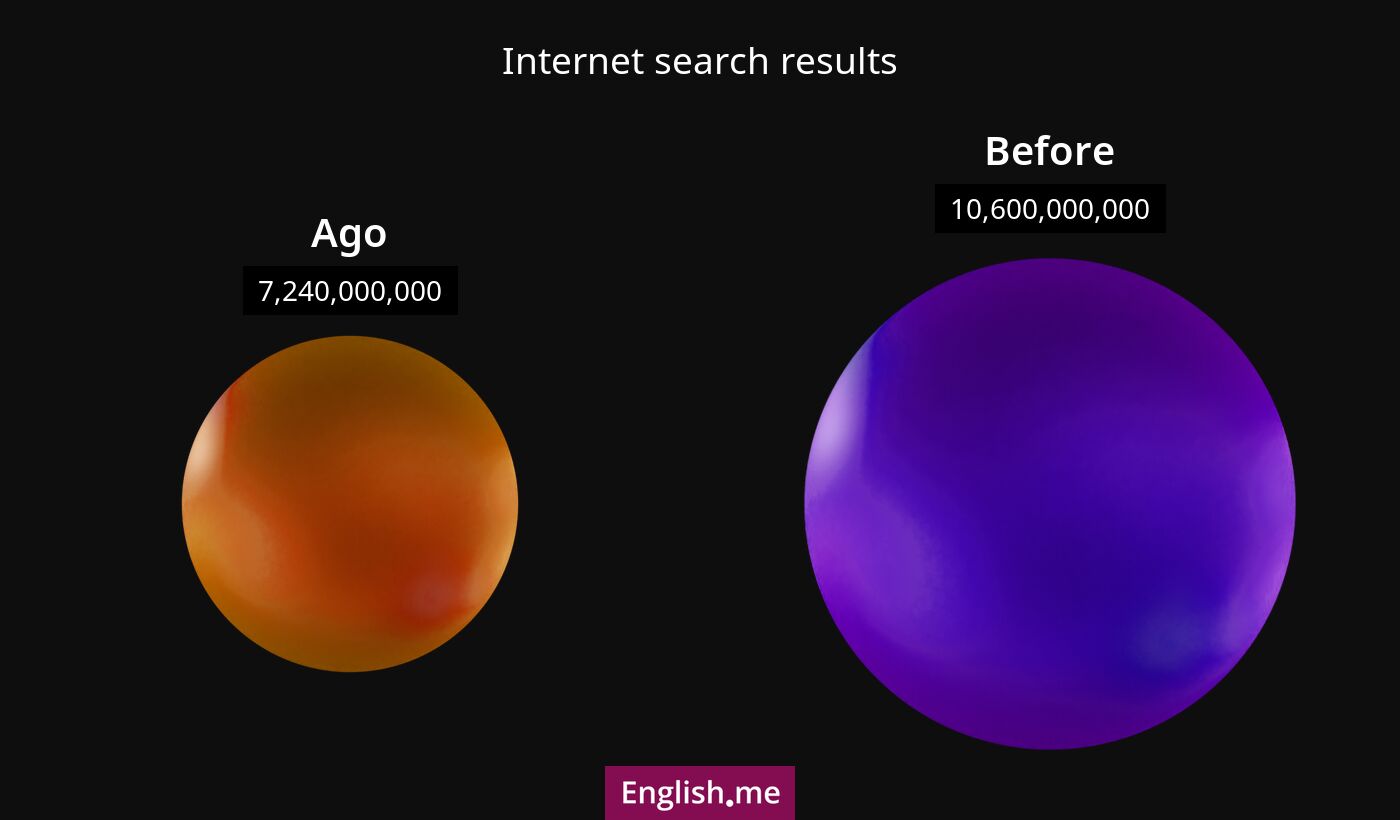Exploring "ago" and "before": time's unique perspectives
Reviewed and edited by  Anwar Kareem 13/11/2024, 17:08
Anwar Kareem 13/11/2024, 17:08
English.me team member

 What is similar?
What is similar?
Both "ago" and "before" are adverbs that relate to time, indicating that an event or action took place earlier than a reference point. They help position events in the past relative to another point in time.
 What is different?
What is different?
"Ago" is used to denote how much time has passed from the present moment, often with a specific time period. "Before" is used to indicate that an event occurred earlier than a specific point in time or another event, which can be in the past, present, or future.
 Which one is more common?
Which one is more common?

 Examples of usage
Examples of usage
Ago- She moved here three years ago.
- I finished my homework an hour ago.
- I had never traveled by plane before last year.
- Please wash your hands before eating.

 English
English español
español française
française italiano
italiano deutsche
deutsche 日本語
日本語 polski
polski česky
česky svenska
svenska Türkçe
Türkçe Nederlands
Nederlands